BCBC Autumn/Winter - Conference Preview
British Cattle Breeders Club Annual conference goes virtual for 2022
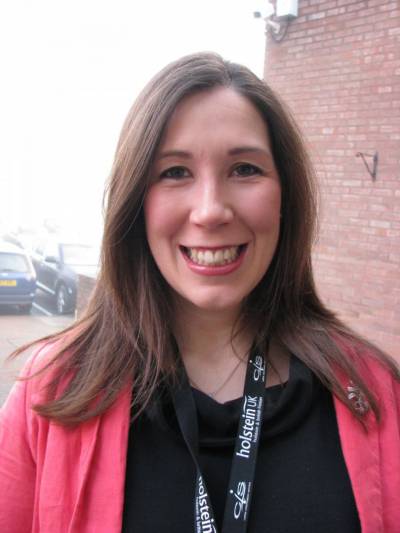
We are pleased to announce that our next conference will be held virtually on Tuesday 25th January 2022. Following on from the resounding success of our first ever virtual Conference, we took the difficult decision to opt for the same format again this year. With so much uncertainty still surrounding Covid-19, we felt it was the safest decision for our speakers, delegates and for the future of the Club. It goes without saying that I will be very sad not to be seeing you all in person!
It is a huge honour and privilege to be Chairman of the Club this year and I am so looking forward to A Breath of Fresh Air the theme chosen for the conference, which will reflect on the club’s aspiration to focus on positivity, resilience and opportunity. We have secured some incredible speakers from home and abroad and look forward to delving deeper into the technological advancements and practical applications of science to move forward breeding and genetics, as well as discussing important subjects for our industry such as mental health and resilience. We have a great evening panel lined up for you too, hosted by our very own President, Professor Mike Coffey so please do join in for the discussion on the Future of Cattle Breeding: 2030 and beyond.
It has been a challenging time for everyone, but we hope that we have developed a Conference programme that will provide a great platform for exchanging new ideas, generating debate and discussion, and meeting old and new friends (albeit virtually)!
As a Club, we pride ourselves on attracting a huge diversity of farmers, researchers, students, lecturers and industry professionals, in addition to the next generation of young people looking to make their way into the industry. This provides the perfect opportunity for discussing and sharing ideas, challenging and encouraging debate and driving businesses forward. Our speakers this year will push the breeding, genetics, and environmental envelope even further and will take sound science and show us how to put it into practice on farm.
I would like to thank all our sponsors for their support, which has enabled us to deliver the Conference, and also all of those who have supported us as we adapt to the new platforms and technologies in our ever-changing world! Many thanks to our speakers, session chairs and technical support behind the scenes and thank you also to the BCBC Committee, particularly my Vice Chair, Amy Hughes, Treasurer, Andy Dodd and our amazingly patient and fantastic Club Secretary, Heidi Bradbury, who has managed to pull everyone and everything together in very challenging circumstances.
I believe that it is a fantastic time to be involved in beef and dairy and we have a great many opportunities to capitalise on. I hope that you enjoy BCBC 2022 A Breath of Fresh Air and that you log out feeling enthused, motivated, informed and inspired to embrace the technological developments, strive to keep moving forward and feel (as I most certainly do) very lucky to be working in our fantastic cattle industry!
BCBC Chair - Dr Karen Wonnacott
BCBC Keynote Speakers announced for 2022 virtual conference
The 2022 conference will include beef and dairy specific presentations with keynote speakers who will address issues that are pertinent to both sectors.
PROF. JUDE CAPPER ABP Chair of Sustainable Beef & Sheep Production, Harper Adams University
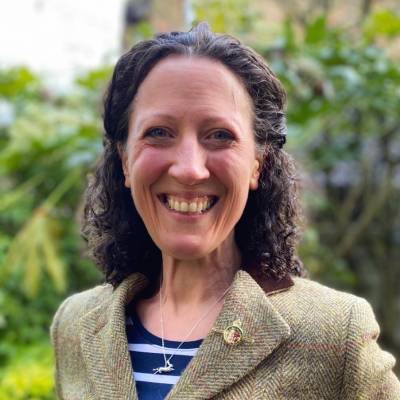
From the first AI to technologies of the future – what role do genetics play in improving sustainability?
The cattle industry has made huge gains in breeding and genetics over the past 70 years, from Sir John Hammond’s revolutionary work, including pioneering studies on artificial insemination, to the genomic tools and evaluations available today. So just how far have these gains brought us in terms of improving sustainability, and what challenges and opportunities do we face in the future?
STEVEN MCLEAN Head of Agriculture & Fisheries, Marks & Spencer
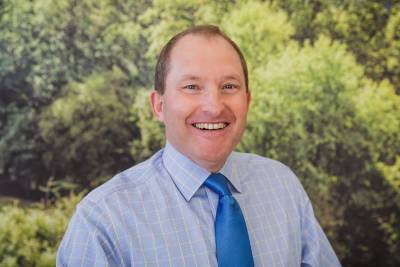
Adapting to change in order to succeed
We are facing huge change in British agriculture. Climate disruption and pressure to achieve net zero, developments to agri cul tural support, changing consumer expect at ions and new international trade arrangements will all impact on livestock farmers, who will need to adapt their businesses to succeed. Steve McLean, Head of Agriculture & Fisheries at M&S Food will explore what today’s consumers want from farmers and how this, along with other factors, will impact technical innovation at farm level as farmers adapt to the changing market requirements.
SETH WAREING Business Manager, Beef Improvement Group
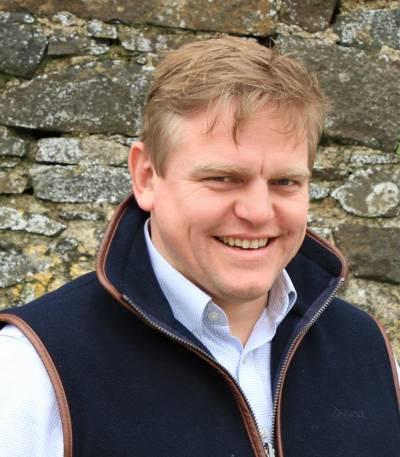
The impact of management and breed on the carbon footprint of beef
The UK beef industry is in a unique position to deliver quality beef with a low carbon footprint, sustainably, ethically and profitably for all members of the supply chain. Production efficiencies, carbon efficiencies and profitability do not need to be opposing forces. By utilising the best management practices and genetics beef producers can have a big impact on the carbon produced by their stock.
MARCO WINTERS Head of Genetics, AHDB
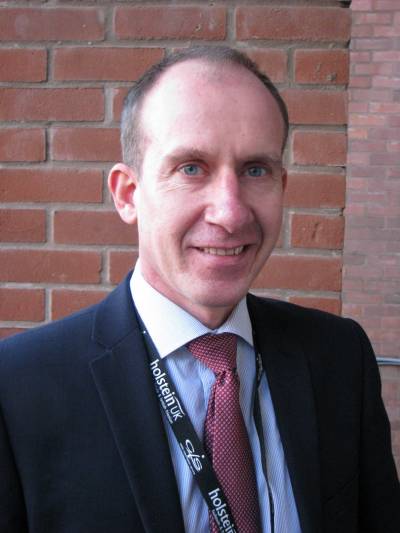
Breeding for Net Zero
Genetics will play a key role in the industry reaching its Net Zero target. The good news is that those who have been using the £PLI index, will already have contributed significantly towards this target. But new AHDB dairy breeding indexes are now available to help us more precisely target future genetic selection. Do you know how the Maintenance index, Feed Advantage and EnviroCow index can help you?
SARAH HAIRE Head of Agriculture for Dawn Meats/Dunbia & Chair of UK Cattle Sustainability Platform
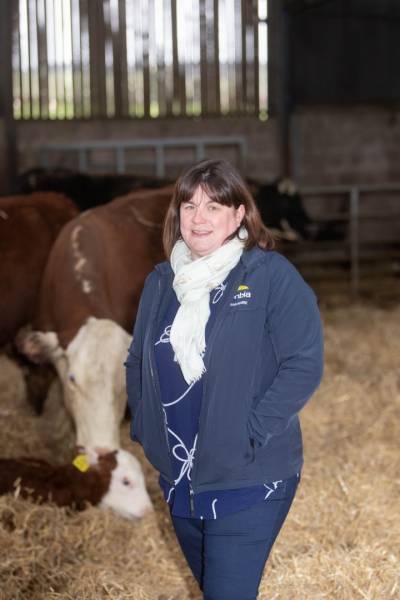
Improving the sustainability of Beef across the supply chain
Sustainability has been at the heart of our business strategy for over 10 years and we are working across the supply chain with customers and suppliers, as well as collaborating with industry bodies such as the ERBS and UKCSP, to ensure we produce a product that delivers against the growing expectations of our end consumers whilst supporting farmers in creating a thriving agricultural sector.
ANDREW RUTTER Partner & Herd Manager, Clayhanger Hall Farm

Form versus Function – How I am using genetics to deliver a cow fit for purpose at Clayhanger
After nearly 20 years working for a genetics company, I had the opportunity to come home and take over the responsibility of breeding the herd of nearly 400 cows plus followers. The remit I set myself is; How can I breed her to be more efficient, more environmentally friendly, easier to care for, more sustainable and more profitable… and what will she look like?
BILLY O’KANE Farmer and Vet, Crebilly Farm

Carbon Audit of a 250 Cow Suckler to Beef Herd. Release v Sequestration
Beef production in the UK and Climate Change. Are we the problem or are we part of the solution? In 2021, with the assistance of a PhD student we undertook a detailed Carbon audit on our 500-acre Suckler to Beef farm. After a literature review and physical measurements, we calculated our total farm Carbon output and total farm Carbon Sequestration using both GWP 100 and GWP*. And the result was….
CLAIRE PHYN PhD Senior Scientist, DairyNZ Ltd
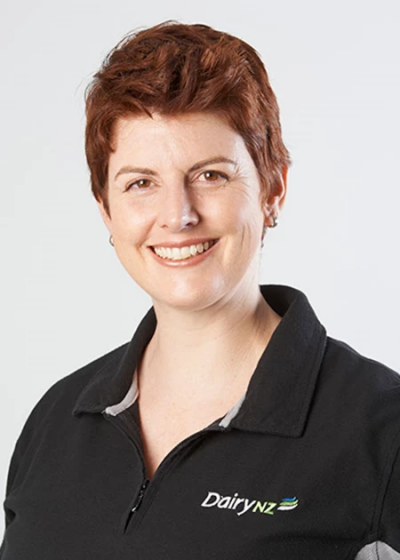
Unlocking the secrets to improving cow fertility genetics
This presentation will out line key findings from a long-term research programme investigating novel traits to improve genetic merit for fertility. In particular, the potential to use earlier-in-life phenotypes, such as timing of puberty, as predictor traits to accelerate genetic improvement in fertility will be discussed along with using activity monitoring devices to measure traits related to oestrus characteristics and resumption of cycling postpartum.
NIGEL OWENS MBE Former International Rugby Union Referee and Beef farmer
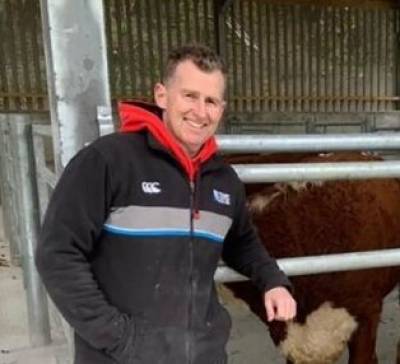
Building mental resilience for a positive farming future
Nigel will share his experiences of building and nurturing mental resilience, both during his career as an international rugby union referee and now, as a beef farmer.
Announcing a new look for BCBC following recent competition
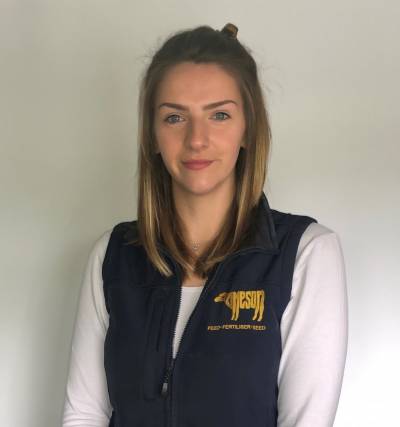
The British Cattle Breeders Club recently invited students to design a new BCBC logo with a fresh, and exciting look, that appeals to all ages of our industry and keeps the values of the club at heart.
We are pleased to announce our winner is Annie Stones with her logo consisting of the union jack within a cow’s head. Annie recently graduated from Harper Adams University with a BSc. Honours degree in Animal Production Science. Her passion for agriculture comes from living on the family farm where they farm around 90 commercial suckler cows and 420 breeding ewes. She takes enormous pride in showing her home bred sheep at local shows, which she admits has certainly brought out her competitive side. She currently works for a local feed company and explained how she enjoys getting out onto different types of farms, seeing how similar people farm successfully, in very different ways.
“I am delighted that my design impressed the judging panel and that they felt I had encapsulated what the club stands for” said Annie, “my thinking behind the logo was to keep it simple and to merge Britain and cattle together without making it too complicated, which I think reflects how cattle breeders in Britain, like myself, can achieve a high standard of cattle by farming in the simplest of ways” explained Annie.
The BCBC Club Chair, Dr Karen Wonnacott stated that “The standard of submissions for our logo comp etition was extremely high and we are very grateful to everyone that took the time to enter. The panel chose Annie’s logo as the winner as we all felt that it embodied the British Cattle Breeders Club in a clean and professional format and will help to raise the profile of the Club ensuring that we remain progressive and relevant to all.”
The two runners up were Niamh McGrath and William Awan, congratulations to them both for making the final and for submitting their fantastic designs.